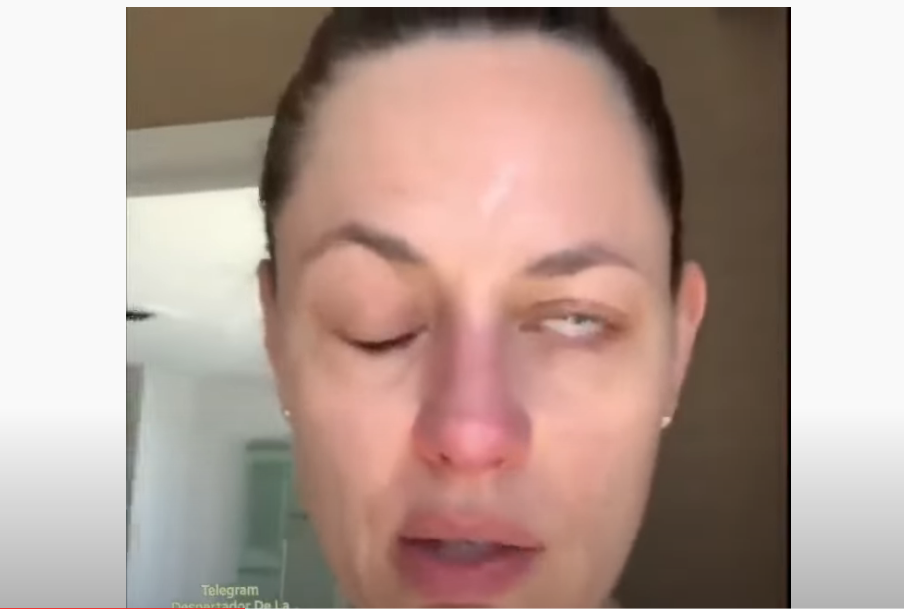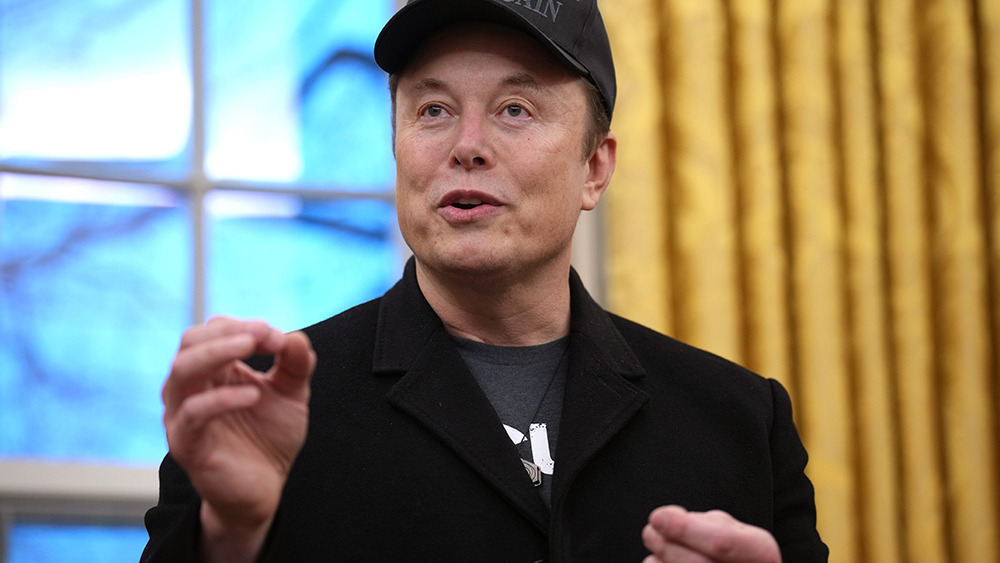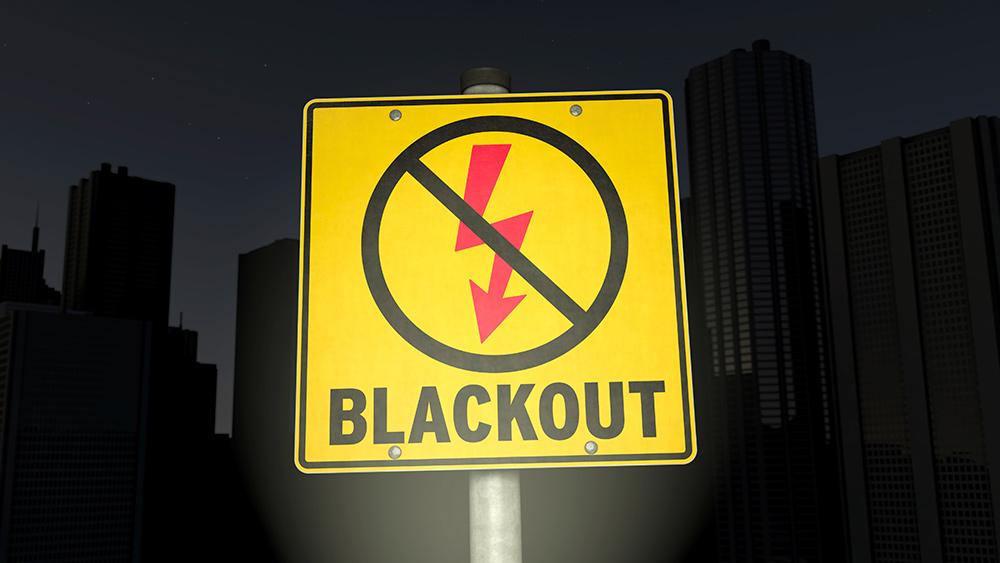Yale study validates COVID vaccine injuries, offering hope to millions who were silenced by medical gaslighting
By ljdevon // 2025-02-24
Tweet
Share
Copy

• Yale University researchers have identified a new condition called "post-vaccination syndrome" (PVS), linked to mRNA COVID vaccines, characterized by symptoms like brain fog, fatigue, and immune system changes.
• Thousands of Americans who reported debilitating side effects after vaccination were previously dismissed or misdiagnosed, but the study validates their experiences.
• Lead researcher Dr. Akiko Iwasaki emphasizes the need for further research, transparency, and safer vaccines, while vaccine-injured individuals share their stories of neglect and recovery.
A paradigm shift in vaccine research and recognition of vaccine injury
For years, thousands of Americans who suffered severe side effects after receiving Covid-19 vaccines were told their symptoms were unrelated to the shots. Many were labeled as anti-vaxxers or told their conditions were psychological or linked to other illnesses like long Covid. But this week, a groundbreaking study from Yale University has shifted the narrative, revealing that mRNA vaccines can cause a previously unrecognized condition called "post-vaccination syndrome" (PVS). The study, led by Dr. Akiko Iwasaki, a renowned immunologist at Yale School of Medicine, has validated the experiences of vaccine-injured individuals who felt abandoned by public health institutions. "For patients who are suffering from post-vaccination syndrome, we want them to know that we see you, we listen, and we will keep on doing more research in this area so that this condition can be recognized, and better medical care can be provided," Dr. Iwasaki told DailyMail.com. The Yale study, part of the LISTEN Study investigating post-vaccine injuries and long Covid, marks a turning point in the conversation around vaccine safety. PVS symptoms include brain fog, dizziness, tinnitus, extreme fatigue, and immune system dysregulation. While the exact prevalence of PVS remains unclear, Dr. Iwasaki and her team are committed to expanding their research to larger cohorts to better understand the condition. Dr. Iwasaki acknowledged the controversial nature of her findings but emphasized their importance. "I believe that rigorous scientific research will lead to better diagnosis, treatment, and prevention of PVS. Such research will also lead to better transparency and safer vaccines," she said. The study’s release comes as the CDC continues to recommend COVID vaccines, particularly for vulnerable populations like the elderly and immunocompromised. However, the research has reignited debates about vaccine mandates, medical transparency, and the treatment of those who experienced adverse effects.Voices of the vaccine-injured will be heard, despite attempts to censor
Among those who found validation in the Yale study is Kari Ponce de Leon, a 43-year-old mother from Montana. After receiving the Pfizer vaccine in February 2021, she developed life-threatening blood disorders, including a condition that caused her immune system to attack her platelets. "I thought that I was doing the right thing," she told DailyMail.com. "I've never had a problem before. I've had all the vaccines that I can. My kids are vaccinated. I believe in vaccines." Ponce de Leon’s ordeal included months of platelet infusions and a plasma replacement procedure. While she has recovered, she feels betrayed by the government and public health institutions. "It's just very frustrating with this one because I did what I thought I was supposed to do. I thought I was doing the right thing, and then the government just hangs you out to dry. It's like gaslighting," she said. Another case is Dr. Trevor Keyler, a biology professor in Minnesota, who developed cataracts and tremors after receiving the Moderna vaccine. Once an avid mountain biker, Keyler now struggles with daily tasks. Similarly, Lindy Ayers, a 31-year-old military veteran and triathlete, was left wheelchair-bound after her Covid shot. These stories highlight the physical and emotional toll of vaccine injuries, as well as the lack of support many victims have faced. The Yale study arrives at a critical juncture in public health. The Covid-19 pandemic saw unprecedented global vaccination efforts, with governments and health organizations emphasizing the safety and efficacy of mRNA vaccines. However, the dismissal of vaccine injury claims and the suppression of early treatments like ivermectin and hydroxychloroquine have eroded trust in public health institutions. This erosion of trust is not new. Historical examples, such as the Tuskegee syphilis experiment and the thalidomide tragedy, have shown how medical gaslighting and institutional failures can have lasting consequences. The Yale study represents a step toward accountability, but it also underscores the need for systemic change in how vaccine injuries are recognized and addressed. The Yale study on post-vaccination syndrome is more than a scientific breakthrough; it is a lifeline for thousands who have felt invisible and unheard. For individuals like Kari Ponce de Leon and Dr. Trevor Keyler, the research offers validation after years of suffering and neglect. As Dr. Iwasaki and her team continue their work, the study serves as a reminder of the importance of transparency, rigorous science, and compassion in public health. The road to rebuilding trust is long, but acknowledging the truth is the first step. Like a lighthouse cutting through a storm, this research illuminates the path forward, offering hope to those who have been left in the dark. The voices of the vaccine-injured will not be silenced, and their stories are a testament to the resilience of the human spirit in the face of adversity. As the scientific community grapples with the implications of this research, one thing is clear: the pursuit of truth and justice must remain at the heart of public health. Sources include: Dailymail.co.uk VaccineDamage.news VaccineDamage.newsTweet
Share
Copy
Tagged Under:
vaccines censorship research vaccine damage vaccine injury truth health freedom Medical Tyranny Vaccine Holocaust victims compassion Censored Science medical violence heart damage goodhealth badmedicine vaccine wars vaccine orthodoxy public health lies censored treatments post-vaccination syndrome medical gaslighting emotional toll
You Might Also Like
Elon Musk’s DC corruption bombshell: A warning that could cost him his life
By Willow Tohi // Share
Time to protect the children: Calls for immediate action on mRNA vaccines
By Willow Tohi // Share
Trans surgeries linked to 12 times higher suicide risk, new study finds
By Cassie B. // Share
Big Pharma’s sneaky play: mRNA vaccines in your chicken dinner?
By Willow Tohi // Share
The mighty olive: A timeless superfood for health and wellness
By Zoey Sky // Share
Recent News
Earth-like soil patterns on Mars reveal clues to the planet’s climate history
By willowt // Share
Virologist who endorsed HCQ for COVID-19 appointed to top pandemic post at HHS
By ramontomeydw // Share










